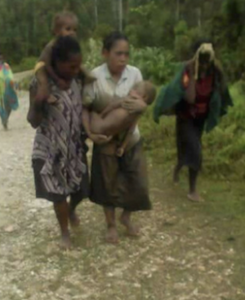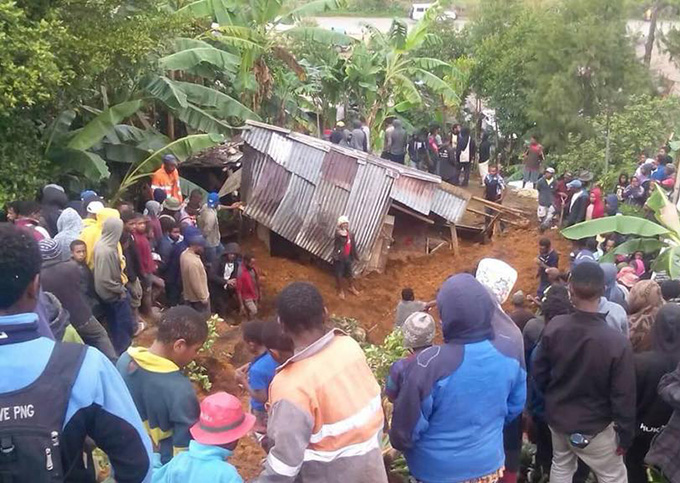Professor Chalapan Kaluwin of the University of Papua New Guinea’s School of Natural and Physical Sciences says the country should prepare itself for more natural disasters. EMTV News
By Scott Waide of EMTV News
Our biggest challenge as Papua New Guinean journalists has been verifying the statistics from rural areas with limited resources. As much as possible, I’ve tried to talk to a victim of the earthquake or someone close to a victim.
Over the last 24 hours, it has been more of a “hit-and-miss” situation. People have been sending me text messages at 2am in the morning when they are in a mobile coverage area.
Then they have have to go back to their villages or deal with the ongoing tremors. Getting in touch has been difficult.
READ MORE: Earthquake disaster death toll stands at 31

So far, the current death toll from Monday’s 7.5 magnitude earthquake stands at 31.
The three separate sources in Southern Highlands, Hela and Western Provinces have also said the number of those injured and missing remain uncertain at this stage.
I note that overseas media is quoting a figure of 300. Truth is, we don’t really know.
Village deaths
With the help of Milton Kwaipo, I was able to get a recorded interview of Firmin Tiki, from Pureni village, Hela province who confirmed six deaths in his village alone.
Several of those injured by the quake have been take to Tari hospital for treatment. Again, we don’t know how many have been injured.
“Six people died. I don’t know how many injured. But there are many.”
Tiki, a rice farmer at a National Agriculture Research Institute (NARI), had just returned to his village when the quake struck early Monday.
“All our houses, our gardens have been destroyed. I don’t know about other places but we were hit hard,” he said.
It has been difficult getting in tough with Tari hospital.
Although I note the doctors have been working under difficult conditions to get through their surgeries using mobile phones torches.
13 people buried
Across the Strickland River in villages near the epicentre on the Hela-Western border, a community Health Worker, Paul Isilawa, confirmed that 13 people were buried on Monday.
They belong to the Edolo tribe whose hamlets are located in an area difficult to get to.
Sally Lloyd who grew up in the Western Province said nine of those who died are from Fau and four are from Aiya. Both villages are within Hela Provincial boundary. The reports were sent from the Mogulu Mission Station in Western Province by two-way radio.
In Mendi, Catholic Priest Fr. Pius Hal, said that 11 people including four children are confirmed dead. Two of the children belong to a local level government president. One family is still buried under a landslip.
“I am at the site where the family is buried. There is a lot of uncertainly about whether help will come. People are traumatised and they need to be comforted.
“The family who is buried are my relatives. They had just returned from Hagen the day before,” he said.
Many thanks
A great many thanks to the families of those on the ground. Thank you also to the police who were kind enough to provide verification and direction.
My gratitude also goes to the many “citizen journalists” who provided contacts, independent reports, pictures, audio recordings and videos of the destruction. There are too many people to name.
Mobile phone towers destroyed by the quake are slowly being repaired. So far, other information coming from far flung areas has remained unverified. The death toll is expected to rise as new information becomes available.
We still have a lot of work to do.
Scott Waide is the Lae bureau chief of EMTV News and began his career with EMTV in 1997 as a news and sports reporter and anchor. He and has been a media professional for more than 19 years. This article is from his personal blog My Land, My Country.













































